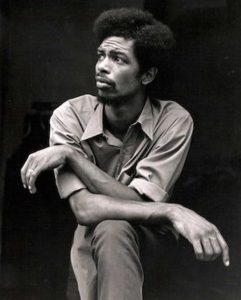
Gil Scott-Heron
Gil Scott Heron was born on this date in 1949. He was a Black poet, lyricist, musician, and activist.
He was born in Chicago, the son of a Jamaican professional soccer player and a college graduate mother who worked as a librarian. His father played for the Scottish football side, Celtic. His parents divorced when he was still a child, and he was sent to his grandmother in Lincoln, TN. Although his grandmother helped Gil musically, racial tensions at the school in Jackson led him, as an adolescent, to relocate to the Bronx to live with his mother. From there, he moved to the Spanish neighborhood of Chelsea.
At 13, he had written his first book of poetry. Heron attended college in Pennsylvania and then left to concentrate on writing his first novel, titled "The Vulture," in 1968. At college, he met Brian Jackson, a long-time musical collaborator. He released his debut album, "New Black Poet: Small Talk at 125th and Lennox," in 1970, the title of which was influenced by a piece of poetry written by his mentor, Bob Thiele. The album contained "The Revolution Will Not Be Televised," an African American cult favorite about the "Pieces of a Man," featured "Lady Day and John Coltrane," and "I Think I'll Call It Morning." Heron was under the Flying Dutchman Records umbrella until the mid-'70s.
His first two albums at the new label were "First Minute of a New Day" with "Winter In America," "Ain't No Such Thing As Superman," and the album "From South Africa to South Carolina with 'Johannesburg.'" 1976, he released the double album "It's Your World."
Arista dropped Heron in 1985 and quit recording, though he continued to tour. In 1993, he released "Spirits," an album with “Message to the Messengers.” The first track on the album was a poem recognizing Heron as a founding father of rap and a plea for the new rappers to speak for change rather than perpetuate the current social situation, to be more articulate and artistic.
In 2001, Gil Scott-Heron was jailed for drug and/or domestic abuse offenses. After that, in 2002, Heron recorded with and appeared on the Blackalicious album, "Blazing Arrow." One of the most important progenitors of rap music, Heron, became a spokesman for the Black person in America during the Seventies and Eighties. His aggressive, no-nonsense street poetry inspired a legion of intelligent rappers. In contrast, his engaging songwriting and poetry skills placed him at the top of contemporary music legends.
Gil Scott Heron died on May 28, 2011.